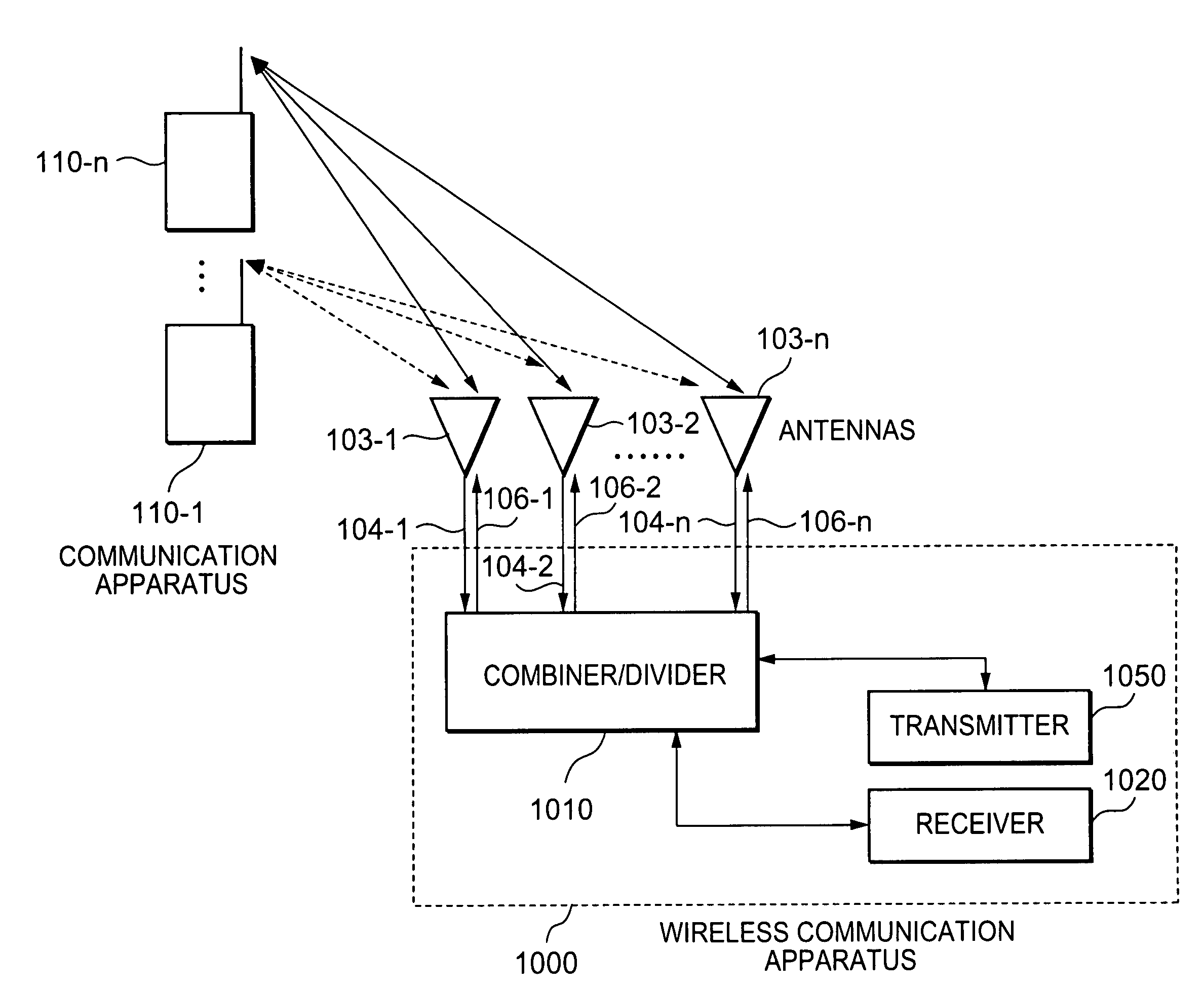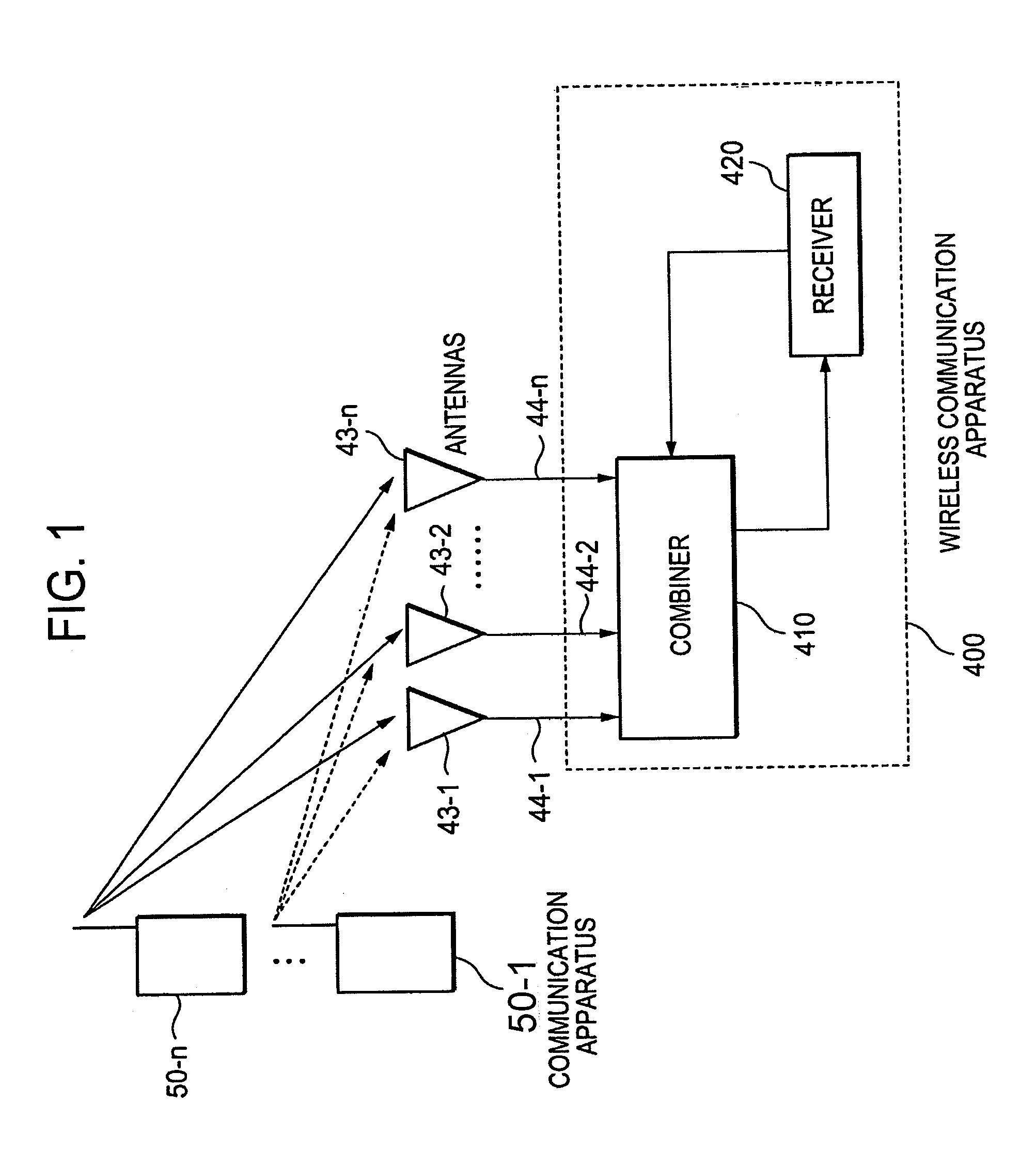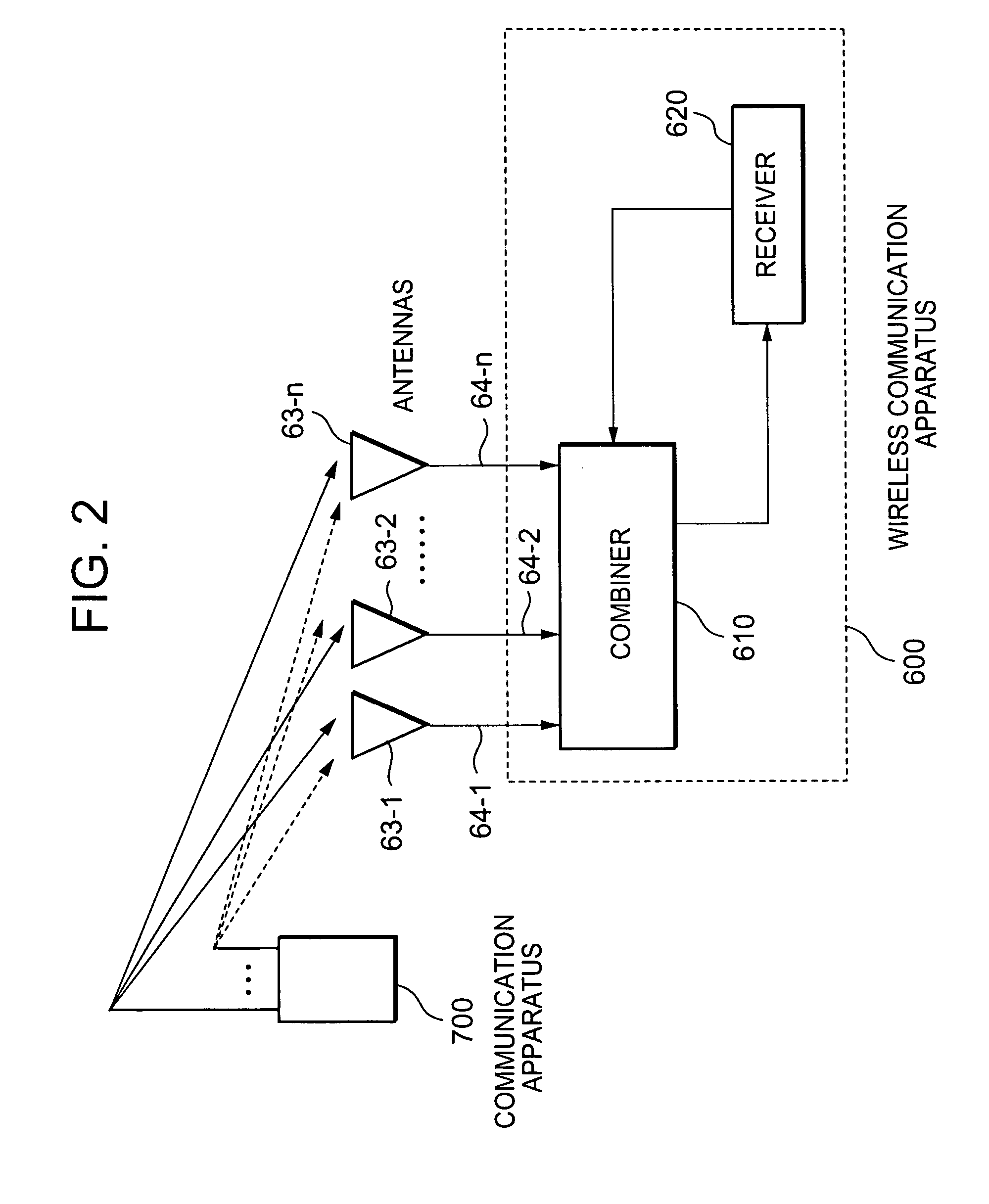Wireless diversity receiver using a combiner with control weights that are based on reported transmission power
a technology of transmitting power and combiner, applied in the field of mobile communication system, can solve the problems of poor reception quality, system work well, and optimization cannot be obtained by merely selecting one of a plurality of antennas, and achieve the effect of optimizing or improving quality
- Summary
- Abstract
- Description
- Claims
- Application Information
AI Technical Summary
Benefits of technology
Problems solved by technology
Method used
Image
Examples
first embodiment
[0037]The combiner 610 may weight the signals 64-1 to 64-n and add them to form the combined signal. The weights may be fixed or variable, as described with respect to the
[0038]Further, as described with respect to the first embodiment, the receiver 620 may transmit information about the reception signals to the combiner 610, and the transmission powers of the reception signals transmitted from the communication apparatus 700 may be controlled by a closed loop power control between the wireless communication apparatus 600 and the communication apparatus 700.
[0039]Accordingly, as described with respect to the first embodiment, the combiner 610 may control the variable weights assigned to reception signals 64-1 to 64-n, based on the transmission powers of the reception signals transmitted from the communication apparatus 700.
[0040]Also as described with respect to the first embodiment, the combiner 610 may control the variable weights at regular intervals or at certain specific times....
fourth embodiment
[0056]According to an alternative aspect of the fourth embodiment, the combiner / divider 1010 may divide the transmission signals into the transmission signals 106-1 to 106-n in a variable ratio and may weight the reception signals 104-1 to 104-n based on the variable ratio associated with the transmission signals 106-1 to 106-n. The combiner / divider 1010 may control the variable ratio based on the received information relating to the transmission powers of the transmission signals 106-1 to 106-n or of the reception signals 104-1 to 104-n.For example, the combiner / divider 1010 may control the variable ratio with the aim of reducing one of: a maximum transmission power of the transmission (or reception signals); an average transmission power of the transmission (or reception) signals; a fluctuation of the average transmission power of the transmission (or reception) signals; a difference between the maximum transmission power and the minimum transmission power of the transmission (or ...
second embodiment
[0059]The communication apparatus 1300 is similar in function and design to the communication apparatus 700 of the second embodiment and therefore will not be described again in detail.
[0060]The wireless communication apparatus 1200 comprises a combiner / divider 1210, a receiver 1220, a transmitter 1250, and plurality of antennas 123-1 to 123-n. where n is two or more. The antennas 123-1 to 123-n receive the reception signals transmitted from the communication apparatus 1300. In addition, the antennas 123-1 to 123-n send to the combined signals 124-1 to 124-n, respectively, which are generated from the reception signals. Further, the antennas 123-1 to 123-n receive transmission signals 126-1 to 126-n from the combiner / divider 1210, and transmit them to the communication apparatus 1300. The combiner / divider 1210 receives the reception signals-124-1 to 124-n from the antennas 123-1 to 123-n and combines them to produce a combined signal, which is transmitted to the receiver 1220. Furth...
PUM
 Login to View More
Login to View More Abstract
Description
Claims
Application Information
 Login to View More
Login to View More - Generate Ideas
- Intellectual Property
- Life Sciences
- Materials
- Tech Scout
- Unparalleled Data Quality
- Higher Quality Content
- 60% Fewer Hallucinations
Browse by: Latest US Patents, China's latest patents, Technical Efficacy Thesaurus, Application Domain, Technology Topic, Popular Technical Reports.
© 2025 PatSnap. All rights reserved.Legal|Privacy policy|Modern Slavery Act Transparency Statement|Sitemap|About US| Contact US: help@patsnap.com



